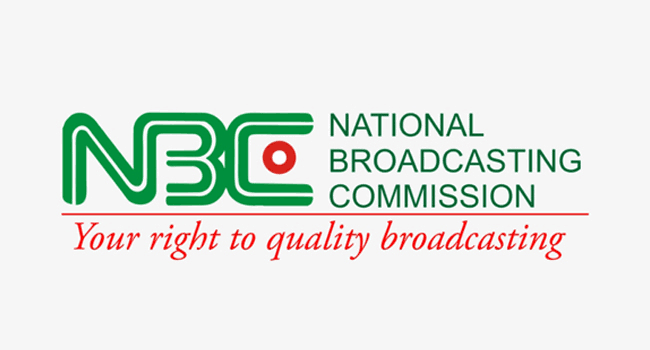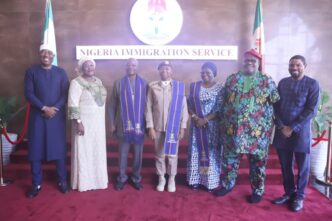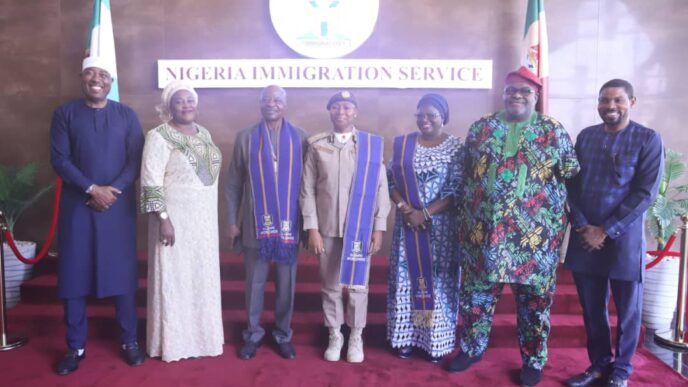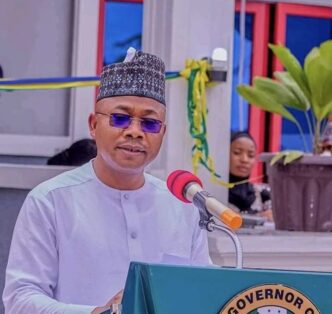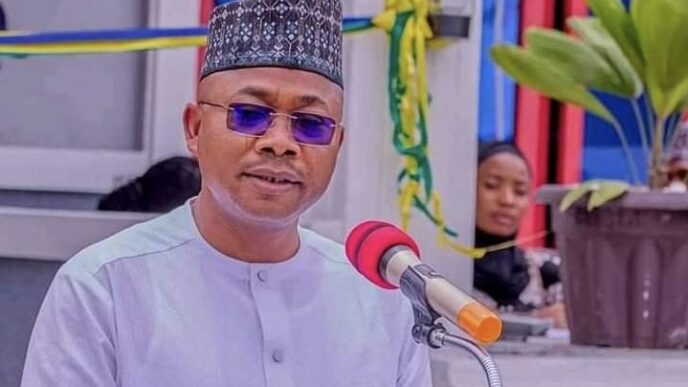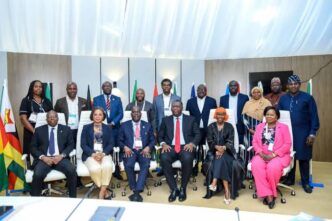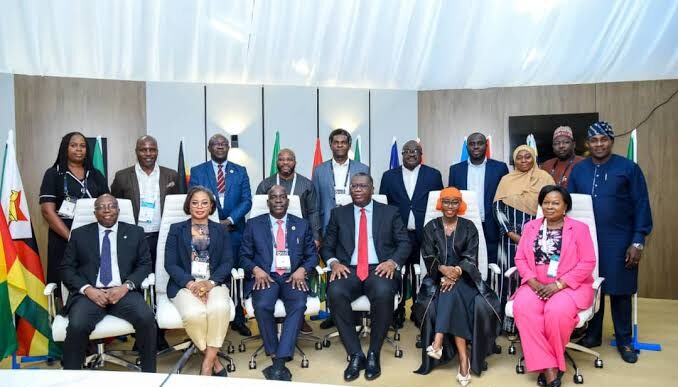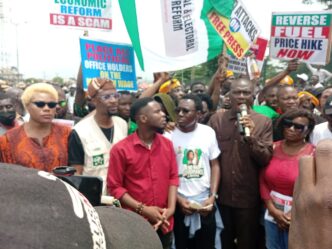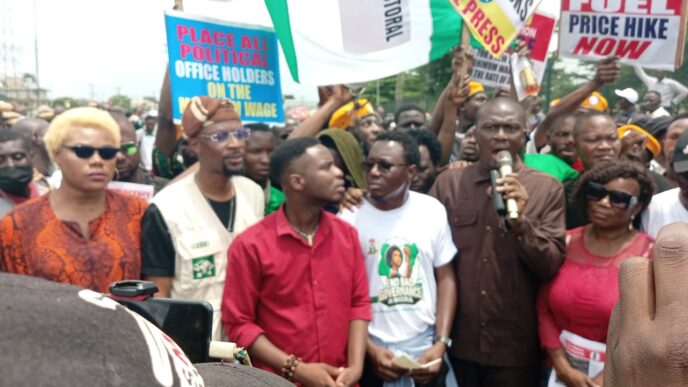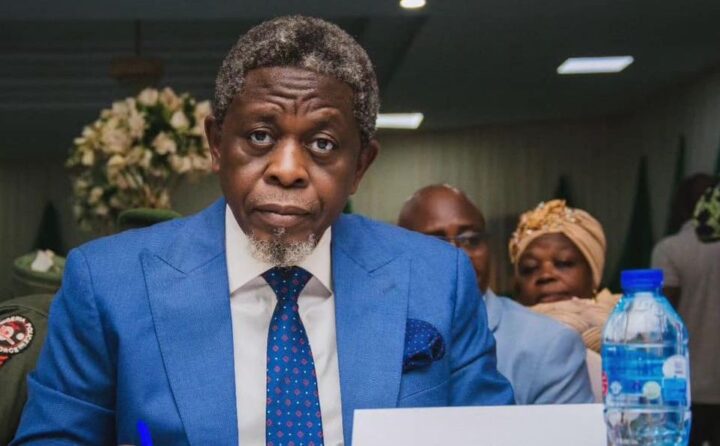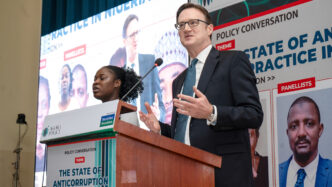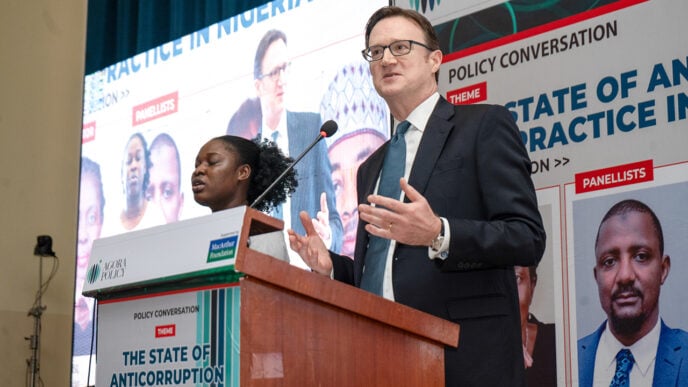I am not about to write an elegy for the National Broadcasting Commission (NBC) yet. Afterall, the regulator of the broadcast industry is not dead although it suffered jeopardy recently. Besides, I have written quite a number of them lately, including the one for my elder brother whose health was mismanaged by a teaching hospital that exists only in name.
My point of discourse this morning is the judgment secured by Multichoice, late November, against the broadcast regulator which released the cable TV operator from meeting some new regulatory provisions to the regulator. I have followed some media reports on this matter and my heart is bleeding inside. It is not just because the NBC lost the case or whether it deserved the loss, the pain derives from the wider implications of such judgment.
Mind you, I have nothing against the judgement or Justice James Omotosho of the Federal High Court, Abuja, who gave the judgement, instead, he has earned my respect for making such informed bold declarations that could affect the industry to no end. For a regulator, the NBC is castrated at this time and all people of goodwill, who love the broadcast industry, should be interested in the regulator managing its way back to relevance. NBC is in a regulatory nightmare and needs help urgently.
There are too many issues involved and they are more subterranean than simple.
I will attempt a disentanglement before returning to the judgment. The National Broadcasting Commission Act CAP N11, Laws of the Federal of Nigeria, 2004, gives a lot of powers to the regulator to superintend the broadcast industry, including raising funds for its operations apart from budget allocations from the government.
Advertisement
Apart from licence fees, the Act particularly states in Section 14, 2a, as follows: There shall be paid and credited to the fund established pursuant to subsection (1) of this section – such percentage of fees and levy to be charged by the Commission on the annual income of licensed broadcasting stations owned, established or operated by private individual(s), Federal, State or local government.
The NBC was in order when it placed a 1.5 percent charge on earnings of the broadcast operators within the Nigerian jurisdiction. This was later raised to 2.5 percent under the administration of President Muhammadu Buhari. There was nothing wrong with that as well.
This was given further clarification in the 2019 Nigeria Broadcasting Code in Section 10a and 10b wherein it stated as follows: The Broadcaster shall – a. Remit to the Commission 2.5% of its Annual Income; and b. The Annual Income referred to in ‘a’ above shall be Gross Annual Income.
Advertisement
Something I must state here is that the regulatory house is like a trading post. There are so many things to sell – licenses, services, knowledge and much more, just so that the regulator could raise money and sometimes become richer than the country.
In the market there are always a lot of haggling and negotiations for those who want to enjoy a little price advantage especially in these hard times. One thing you should also know is that the fact that the 2.5 percent charge exists didn’t really mean that Nigerian operators were paying it. A number of factors made payment impossible, including very challenging business terrain which we have continued to deny its existence and crushing effects.
It is in following that market practice, that is as old as history, that top management of the NBC, some years back, negotiated with Multichoice and reached an agreement for a flat payment of N800m annually. This writer was told that Multichoice had paid that money without fail.
But something happened recently and there is no need for details here. A renegotiation wasn’t called for between Multichoice and NBC, instead a flat rate of N4bn annually was imposed. Besides, the regulator was asking for all kinds of financial papers beyond the annual reports.To worsen matters, some externalities intruded in the process, with some attitude, an industry person told this writer, was disrespectful and demeaning.
That was a mistake. Only a few big organisations want to go down without a fight. Multichoice is not one of them. The organisation went to the Federal High Court in Abuja to seek protection. Multichoice and Details, through their counsel, Moyosore Onigbanjo (SAN), sought to find out if NBC is entitled to more information beyond the annual audited account and whether the term , “gross annual income,” as enshrined in the NBC Code is the right expression. The counsel also wanted to know if the N800m flat rate between the regulator and his clients since 2020 was binding. Justice Omotosho granted the protection and reliefs with some level of aplomb and brilliance.
Advertisement
“The proper and lawful income to impose a levy on is the net income. In the United States, companies pay a flat rate of 21 percent on profits after expenses. Similarly, in the UK, a 25 percent tax is imposed on company profits,” Onigbanjo seemed to lecture his audience.
He acknowledged the significant capital demands and expenses to run a business like Multichoice and said it was only fair for these expenses to be deducted before the Annual Operating Levy is paid. He was emphatic that it is the actual profit after deductions that should be taxed.
Justice Omotosho also ruled that the agreement to pay N800m as the Annual Operating Levy for the years in question was binding.
Quite a few industry voices have hailed this judgment as good for Multichoice, and more so for the industry. They say that, sometimes, it is good for this kind of dispute to arise in order to test the laws guiding an industry. They noted however, that this particular case is different and exacerbating because some people have codified their personal businesses and interests into the law protecting the broadcast industry.
Advertisement
So, if this case and the attendant judgment could lay some ghosts to rest, why is my heart bleeding? No regulator wants to be stripped of its powers and it’s not also good for the industry, at least, the ones I am conversant with – broadcasting and telecommunications, to feel the whiplash of an audacious judge who could rise beyond emotions to do a damn good job.
It is simple regulatory wisdom for regulators not to get too enmeshed in court cases with operators. For one thing, every industry needs harmony to thrive, and for another, some operators can be so rich that they become richer than their jurisdictions and can hire the best lawyers in the world to deal with any situation. However, the worst nightmare comes for the regulator when defeated in court and is stripped of some powers. For this reason, they teach you at the global regulatory fora to avoid situations that can quickly grow into embarrassment.
Advertisement
For God’s sake, the NBC is a regulator of note but there are too many things happening there that are too fuzzy and even puerile to enable the organisation perform. There is sharp descent at the regulatory institution and this should be halted.
Chief Obafemi Awolowo of blessed memory once declared that government is a continuum. Believing in that declaration therefore, I want to observe that it was very uncharitable for the organisation to openly rubbish the efforts of some of the Commission’s previous and present workers – that they overreached themselves and didn’t have the powers to go into negotiations with the broadcast operator. No now, a giant doesn’t thread on needles without punitive results.
Advertisement
Let’s stop kidding. The nation’s business terrain is so challenging that we should deliberately encourage those bold enough to bring their cash into the operating environment , and also push the regulator to develop a clear head and build better capacity to really grow an industry. Or does the broadcast industry not need growth?
Advertisement
Views expressed by contributors are strictly personal and not of TheCable.

